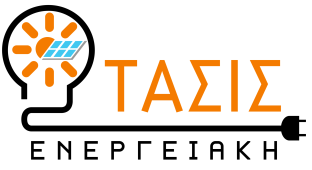
Technical Failures, Errors and Faults in Photovoltaic (PV) Systems
The Hidden Side of Solar Energy – How to Stay Protected
technical failures
At TASIS Energy, we have firsthand experience with the issues that can arise in photovoltaic systems when they are not properly designed, installed, or maintained. These systems may appear simple on the surface, but they are complex electromechanical installations that require technical expertise, regular inspections, and compliance with standards to ensure long-term performance and safety.
The Reality in Greece
Since 2009, approximately 42,000 rooftops across Greece have been equipped with interconnected PV systems through the “PV on rooftops” Special Programme. In addition, there are more than 10,000 PV parks installed on fields and industrial buildings, all connected to the national grid.
Despite the challenges in contractual frameworks and financial stability that have occasionally affected the renewable energy sector, photovoltaics remain one of the most secure and profitable investments in Greece.
The Risk Behind the Panels
Every PV system—regardless of size or type of interconnection—is a modern electromechanical installation that is constantly exposed to environmental conditions such as:
-
High voltage
-
Strong wind pressure
-
Humidity
-
Solar radiation
-
Mechanical wear and tear
These factors, combined with proximity to buildings and people, increase the potential risk for both equipment and human safety.
Unfortunately, these risks are often underestimated—especially when the system has not been properly designed, installed, or maintained according to international standards and PV regulations.
What Does the Data Show?
Based on inspections and technical maintenance services provided by TASIS Energy, we have found that:
⚠️ 1 in 3 photovoltaic systems has significant technical faults or errors, most of which originate from the initial installation and are only discovered during the first scheduled technical inspection.
These failures pose serious risks not only to the equipment and building but also to the environment and human life.
Main Categories of PV System Failures
In a sample of 300 PV systems (rooftop and ground-mounted installations, from 2006 to 2015), we categorized the failures as follows:
🔧 1. Design Failures
-
Non-optimal system layout and sizing
-
Ignoring panel/inverter/base manufacturer specifications
-
Lack of knowledge or non-compliance with local regulations
-
Absence of protection/control devices
-
No use of technical design software
-
Failure to consider shading, orientation, or cable sizing
🛠️ 2. Installation Errors
-
Poor workmanship or haste
-
Lack of qualified supervision
-
Ignorance of safety regulations
-
Disregard of manufacturer instructions
-
Untrained or uninformed installers
-
Illegal installations without the owner’s knowledge
⚙️ 3. Operational Issues
-
Absence of regular technical maintenance
-
No telemetry or performance monitoring
-
Equipment failure (e.g., inverters, fuses, grounding)
-
Environmental or weather-related damage (lightning, flooding)
-
Human mistakes or sabotage
Real Consequences
The consequences of these failures are not just technical. They can lead to:
-
Decreased energy production
-
Equipment breakdown
-
Structural damage to buildings
-
Environmental hazards
-
And most importantly: danger to human life
According to our findings:
🚨 2 out of 3 systems lack proper grounding
🔌 50% are not optimized for performance
🧯 Most do not include essential safety equipment
Common issues include blown fuses, electrical leakage, corrosion, insulation damage, inverter faults, PID (Potential Induced Degradation), hotspots, and lightning damage.
The Root Cause: Lack of Knowledge
Whether it’s the installer or the owner, a major issue is lack of awareness. Many PV technicians are not certified or trained specifically for photovoltaic systems.
✅ The Solution: Regular Maintenance by Certified Experts
The only reliable solution for existing PV installations is:
🔧 Scheduled Technical Maintenance and Inspection by Qualified Technicians
At TASIS Energy, we offer:
-
Engineers certified under the European PVTRIN programme
-
Nationwide technical support
-
High-quality maintenance packages
-
24/7 support and expert diagnostics
Protect Your Investment – And Your Safety
A PV system is not a “fit and forget” solution. It needs proper care.
Let TASIS Energy ensure your system operates safely, efficiently, and profitably—for the lon
